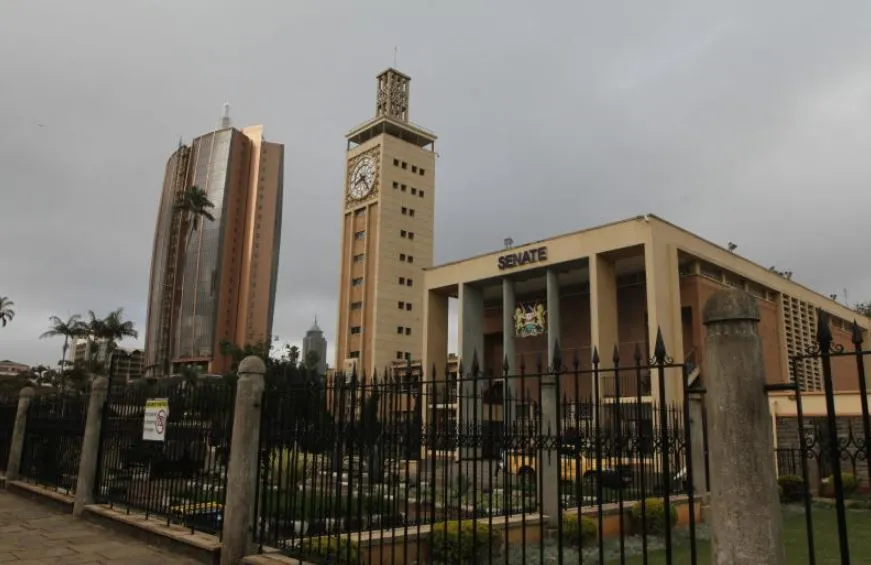News
MPs Raise Concern Over Lack Of Compensation For Unused Data Bundles

The National Assembly’s Communication, Information and Innovation Committee has criticised the Communications Authority (CA) for inadequate measures to protect consumers from data bundle expiries and internet service disruptions by major internet service providers (ISPs).
Led by Committee Chairman John Kiarie, the lawmakers expressed frustration over how ISPs like Safaricom, Airtel, and Telkom handle data bundles and service disruptions, calling for stricter oversight.
The lawmakers further raised concerns about the lack of compensation for unused bundles, insufficient consumer protection frameworks, and the absence of a clear mechanism for addressing complaints.
Kisii County Woman Representative, a member of the Committee, expressed frustration over the current ISP practices, questioning why data bundles expire before consumers can fully utilise them.
“Why do we pay for bundles that expire before we use them? If bundles worked like other utilities, consumers wouldn’t be losing their money,” she stated.
MP Geoffrey Wandeto described short-term data packages as “a fraud,” arguing that the validity periods of data bundles are often too brief for consumers to use the full amount they purchase.
“How can someone realistically consume 20GB of data within an hour?” he questioned, calling short-term expirations exploitative.
His sentiments were echoed by Committee Chair Kiarie, who called for more robust consumer protections, noting that several other countries have implemented no-expiry policies for data bundles.
“If other jurisdictions are moving towards no-expiry policies, there’s no reason we can’t do the same here,” Kiarie stated, adding that consumers deserve data packages that give them full value for their money.
He also pointed out that radio stations publicly address quality-of-service issues, questioning why ISPs do not adopt similar transparency for internet services.
“If radio stations can address quality issues on air, ISPs should be equally transparent with their internet services. Why can’t they alert consumers about expected downtimes, quality issues, or even compensation policies?” posed Kiarie.
On his part, CA Director-General David Mugonyi acknowledged regulatory shortcomings, particularly around compensation during service disruptions.
He explained that while the CA has penalized ISPs for violations, the Kenya Information and Communications Act (KICA) of 1998 lacks explicit provisions mandating consumer compensation.
“Our monitoring and enforcement are being strengthened, but we need clearer legal authority to require compensation,” Mugonyi said, referencing the CA’s recent “Chukua Hatua” campaign aimed at educating consumers about complaint processes.
He assured the Committee that the CA is committed to expanding monitoring systems and enhancing oversight of more than 500 licensed ISPs to improve accountability and service quality.
Kenya Insights allows guest blogging, if you want to be published on Kenya’s most authoritative and accurate blog, have an expose, news TIPS, story angles, human interest stories, drop us an email on [email protected] or via Telegram
-

 Investigations2 weeks ago
Investigations2 weeks agoHow Land Grabbing Cartels Have Captured Ardhi House
-

 Business2 weeks ago
Business2 weeks agoPanic As Payless Africa Freezes With Billions of Customers Cash After Costly Jambopay Blunder
-

 News2 weeks ago
News2 weeks agoSCANDAL: Cocoa Luxury Resort Manager Returns to Post After Alleged Sh28 Million Bribe Clears Sexual Harassment and Racism Claims
-

 Investigations1 week ago
Investigations1 week agoHow SportPesa Outfoxed Paul Ndung’u Of His Stakes With A Wrong Address Letter
-

 News3 days ago
News3 days agoTemporary Reprieve As Mohamed Jaffer Wins Mombasa Land Compensation Despite Losing LPG Monopoly and Bitter Fallout With Johos
-

 Investigations3 days ago
Investigations3 days agoFrom Daily Bribes to Billions Frozen: The Jambopay Empire Crumbles as CEO Danson Muchemi’s Scandal-Plagued Past Catches Up
-

 Investigations2 weeks ago
Investigations2 weeks agoHow Arrest of a Soldier’s Spouse Dragged KDF Into Alleged Theft of Meth Haul in Mombasa
-

 News1 week ago
News1 week agoRentokil Boss Fraser Branch in Highway Smash as DUI and Racism Claims Surface


















